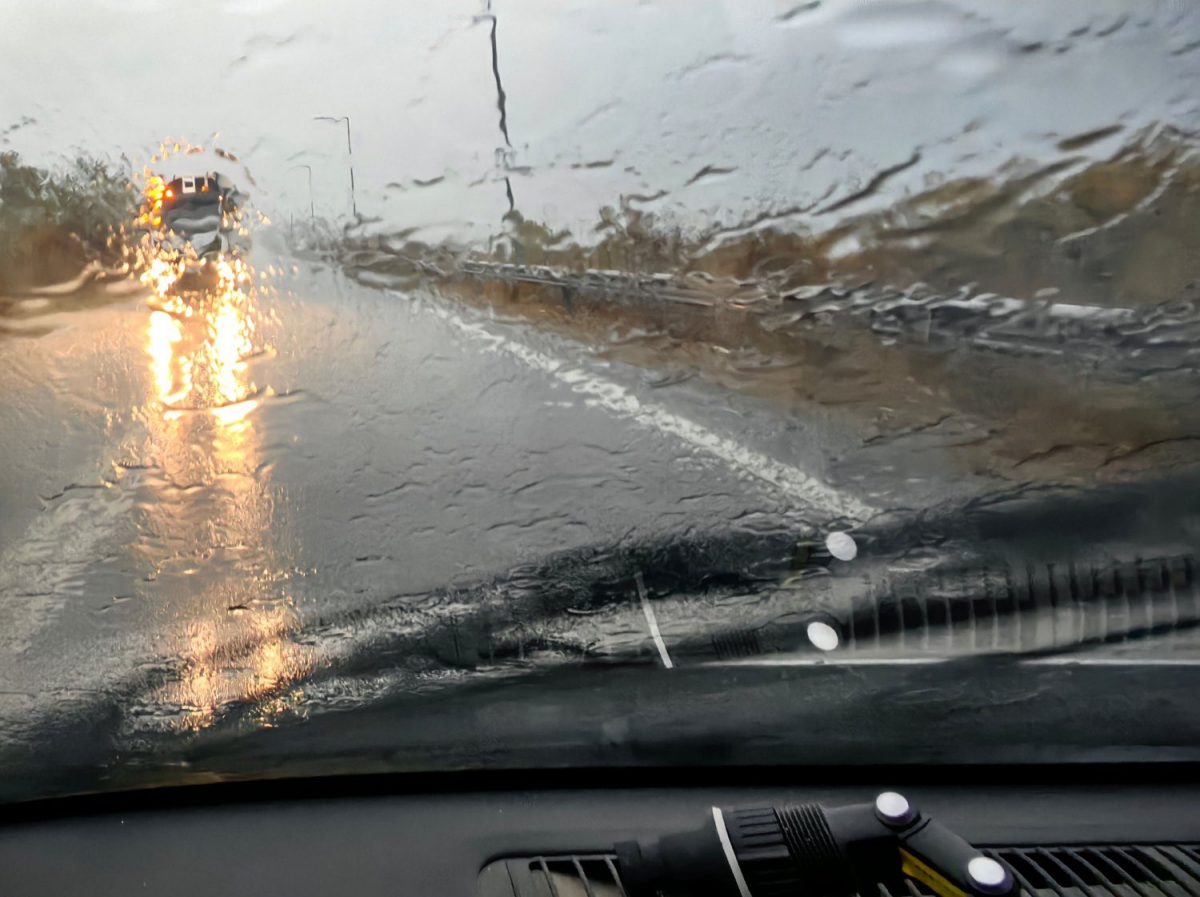Table of Contents
The residents of Thessaly and Central Greece received a message from 112 on the afternoon of Friday 15/11, due to the bad weather Alexandros that is approaching the country.
112 rang in areas of Thessaly, Fthiotida, Evia and the Sporades warning residents to avoid travel and follow the instructions of the Authorities. Dangerous weather conditions are expected from the early evening hours today until noon tomorrow.
⚠️ Activation 1⃣1⃣2⃣
📍areas #Thessaly #Fthiotidas #Evia & #Sporades
🆘 Warning message for the occurrence of dangerous weather phenomena in your area, from the early evening hours today 11/15 to tomorrow noon 11/16
‼️ Avoid your commute and…
— 112 Greece (@112Greece) November 15, 2024
How to estimate the distance to a storm
- Measure the time between lightning and thunder in seconds. Divide the time you measured by 3 to calculate the storm’s distance in kilometers.
- Take the necessary measures quickly, before the storm approaches you. The distance is indicative as the storm can appear very quickly over the area you are in.
The recommendations of Civil Protection
In particular, in areas where heavy rains, storms or gale-force winds are predicted, the Public Health Service recommends that citizens:
- To secure objects which, if carried away by severe weather conditions, may cause damage or injury.
- Make sure that the gutters and downspouts of the houses are not blocked and are working properly.
- Avoid crossing torrents and streams, on foot or by vehicle, during storms and rainfall, but also for several hours after the end of their event
- Avoid outdoor work and activities in marine and coastal areas during severe weather events (risk of lightning strikes).
- Take shelter immediately during a hailstorm. Take shelter in a building or car and do not leave the safe area until they are sure the storm has passed. Hail can be very dangerous for animals too.
- Avoid passing under large trees, under posted signs and in general from areas where light objects (eg pots, broken glass, etc.) can become detached and fall to the ground (eg under balconies).
- To faithfully follow the instructions of the local authorities, such as Traffic, etc.
⚠️ Emergency Bulletin of Dangerous Weather Phenomena #EDEKF #EMY
⛈️ #Bad weather #ALEXANDROS🚨 Operational readiness of the Fire Brigade according to the emergency bulletin of Dangerous Weather Phenomena issued by the EMY 🔗 https://t.co/wD0GWFwHIV
We are updated 🔗… pic.twitter.com/snLOAAIAMt
— Fire Department (@pyrosvestiki) November 15, 2024
In areas with intense lightning activity:
If you are at home
- Do not hold electrical appliances or the telephone as lightning can pass through the wires. Disconnect the TV sets from the antenna and the power supply.
- Avoid touching plumbing pipes (kitchen, bathroom) as they are good conductors of electricity.
If you are in the car
- Park it on the side of the road and away from trees that might fall on it.
- Stay inside and turn on your stop warning lights (emergency lights) until the storm clears.
- Close windows and do not touch metal objects.
- Avoid flooded roads.
If you are outdoors
- Take refuge in a building or car or sit on the ground immediately without lying down.
- Take cover under solid branches of low trees if you are in the woods.
- Never take shelter under a tall tree in an open area.
- Avoid low-lying lands for the risk of flooding.
- Do not stand next to utility poles, power lines, telephone lines and fences.
- Do not approach metal objects (eg cars, bicycles, camping equipment, etc.).
- Stay away from rivers, lakes or other bodies of water.
- If you are in the sea, get out immediately.
- If you’re isolated on a flat surface and feel your hair stand on end (signaling that lightning is about to strike), sit deep with your head between your legs (to minimize your body surface area and contact with the ground ) by throwing the metal objects you have on you.
For more information and self-protection instructions from severe weather, citizens can visit the website of the General Secretariat of Civil Protection at civilprotection.gov.gr
Dangerous phenomena for 30 hours
The EMY issued a new emergency weather report warning of the extreme weather phenomena expected in the next few hours.
A barometric low in the Ionian and unstable air masses in the upper atmosphere will cause severe weather Alexandros with heavy rains and storms accompanied by hail, high frequency of lightning, strengthened winds and a noticeable drop in temperature in northern Greece.
The phenomena will be locally dangerous, with a duration of 30 hours, from the evening hours of Friday (15-11-2024) until the evening of Saturday (16-11-2024).
Thessaly, the Sporades, central and northern Evia as well as the northeastern parts of eastern Sterea will receive the highest amounts of rain. Nevertheless, in the rest of the country the storms will be rapid.
In more detail:
A. Heavy rain and storms are forecast:
On Friday 11-15-2024
From the pre-noon hours in the Ionian. Weakening of the phenomena from late at night.
From midday hours in Epirus, western Sterea and western and northern Peloponnese. Weakening of the phenomena from late at night.
From late afternoon (after 18:00 local) in western Macedonia, Thessaly, Sporades, Evia and eastern Sterea.
On Saturday 11-16-2024
Until the late afternoon (18:00) in Thessaly, the Sporades and eastern Sterea and until the evening hours (21:00) in Evia.
The phenomena are expected to be particularly intense in eastern Thessaly (Larsis prefecture, Magnesia prefecture), the Sporades, central and northern Evia and temporarily in the northeastern parts of eastern Sterea (Fthiotida prefecture, Viotias prefecture).
From the morning hours (02:00) until the evening hours (20:00) on the islands of the eastern Aegean and the Dodecanese.
Until the morning hours (05:00) in the Cyclades.
From the afternoon hours until the night (18:00 – 24:00) in the western parts of Crete.
B. Strengthened northeasterly winds of intensity 8 with gusts of 9 Beaufort are expected to prevail in the northern Aegean from the evening hours of Friday (15-11-2024) until the night of Saturday (16-11-2024).
Strong north-northeast winds of intensity 8 Beaufort will also blow in the central Aegean from midday on Saturday (16-11-2024).
The meteo forecast map shows the highest estimated cumulative rainfall (where it is expected to exceed 50mm) until midday on Saturday 16/11.
#Bad #weather #Alexandros #rang #Thessaly #Central #Greece
– What techniques are used to measure the accuracy of distance estimation to storms?
1. Can you discuss the methods to estimate the distance to a storm and how accurate they are?
2. What are some of the severe weather conditions that are expected to occur in Greece due to Alexandros?
3. How do these weather conditions differ from normal weather patterns in Greece?
4. What precautions should people take during these severe weather conditions, and why are they important?
5. How does the Civil Protection department work to inform and assist citizens during these types of events?
6. What role do social media platforms like Twitter play in disseminating emergency information during natural disasters like Alexandros?
7. How can individuals contribute to reducing the impact of severe weather events on their communities?


